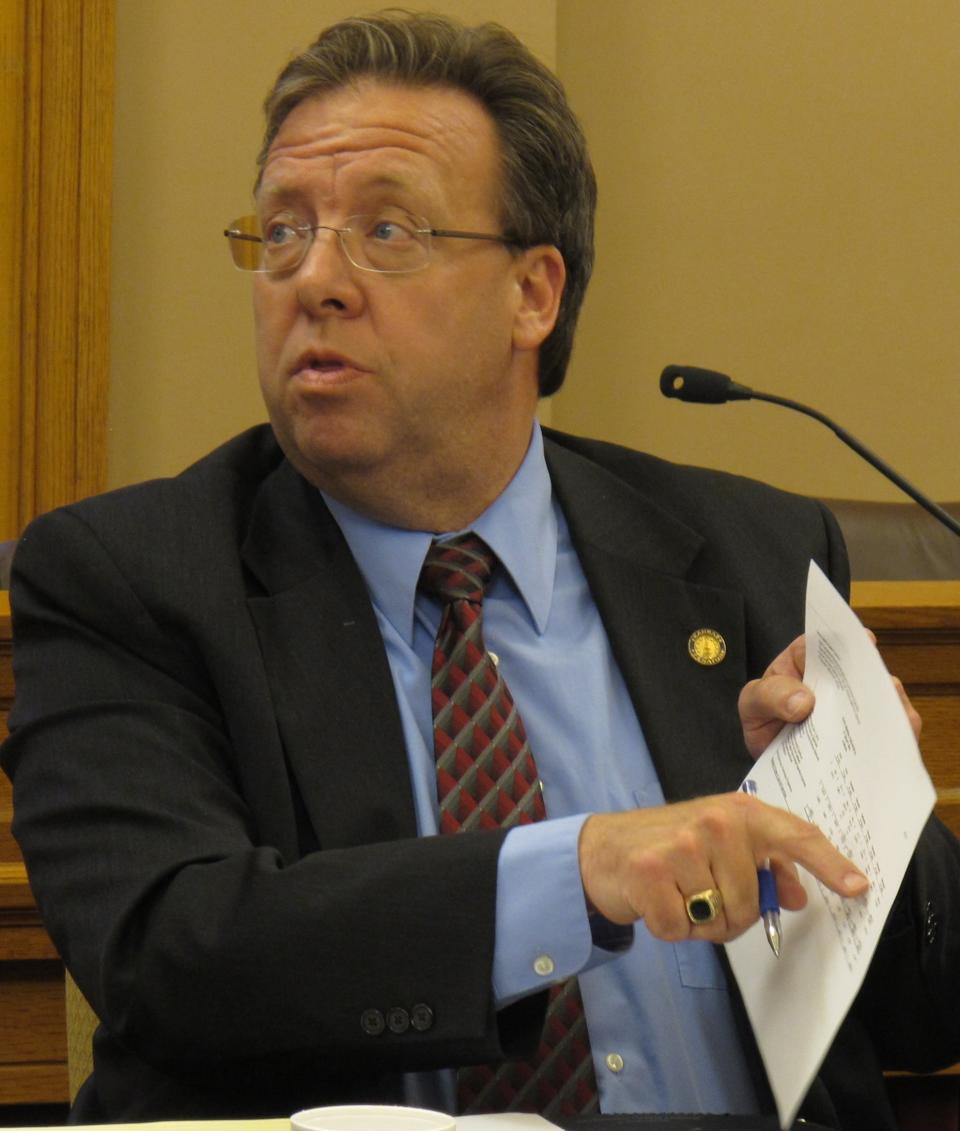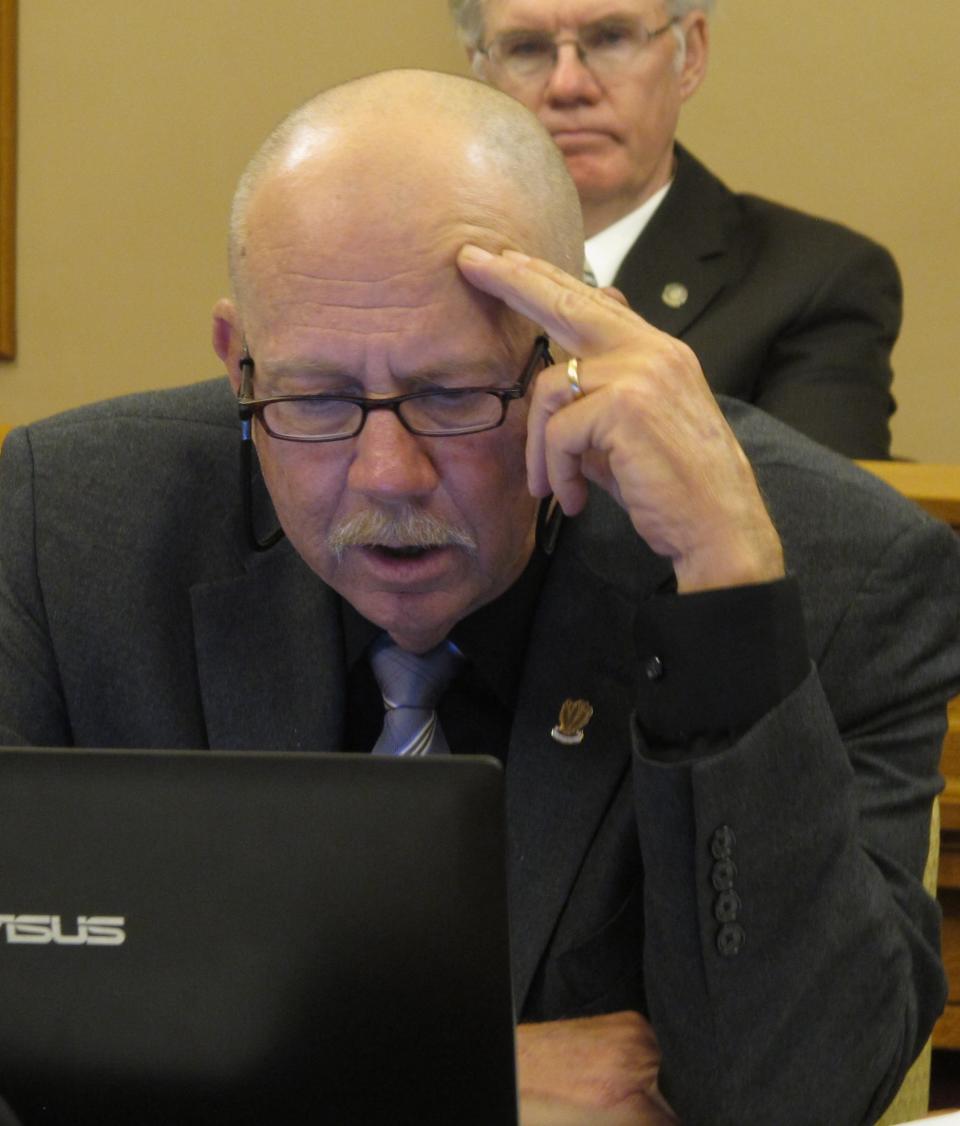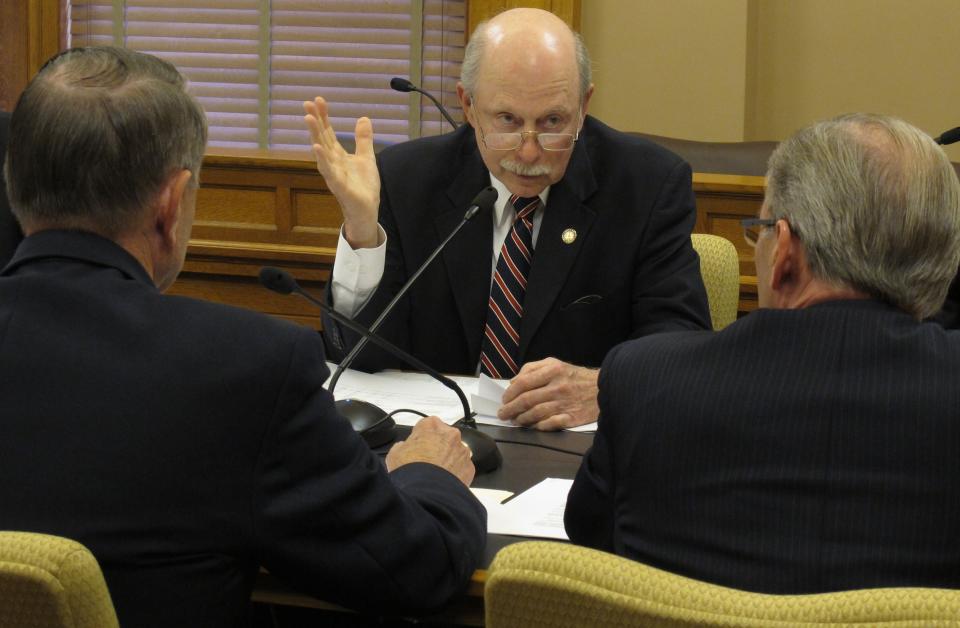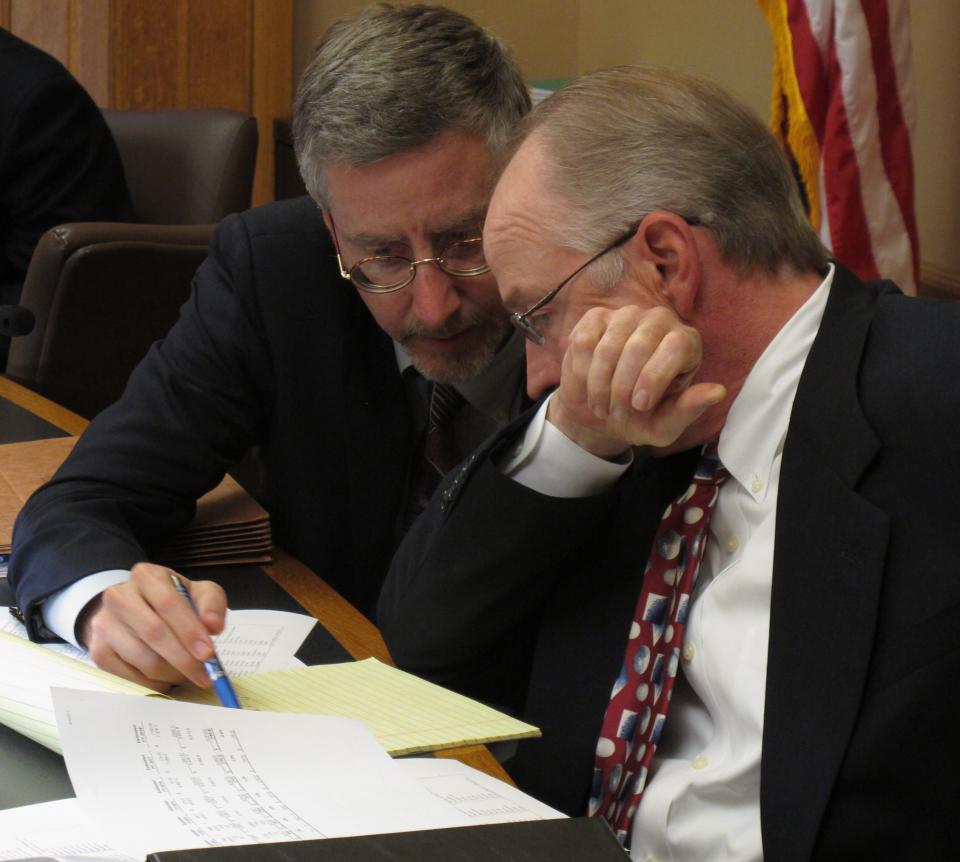Kan. lawmakers struggling with effects of tax plan
TOPEKA, Kan. (AP) — Kansas legislators who are pushing for income tax cuts said Monday they're willing to tinker with their latest plan to avoid a budget shortfall and address a big concern of a bipartisan group already skeptical of the proposal.
House and Senate negotiators reviewed new projections showing that the plan they've drafted for reducing income and sales taxes would create a $161 million budget shortfall by July 2018. Republican Gov. Sam Brownback wants the GOP-controlled Legislature to cut income taxes to stimulate economic growth, but skeptics worry that the state would be forced to slash spending on public schools, social services and other programs.
The new projections Monday from the Legislature's staff were far more optimistic than an earlier forecast, but each chamber's lead negotiator said he'd rather avoid any projected shortfall.
The lead negotiators, Sen. Les Donovan, a Wichita Republican, and Rep. Richard Carlson, a St. Marys Republican, suggested rewriting parts of the plan to delay some income tax cuts. The package would reduce individual income tax rates; phase out income taxes for 191,000 partnerships, sole proprietorships and other businesses, and reduce the sales tax to 5.7 percent in July 2013 from its present 6.3 percent.
Without additional changes, the plan that emerged from negotiations last week would provide $143 million in tax relief during the fiscal year that begins July 1, with the annual figure growing to $595 million by 2018. But lawmakers must consider how the package meshes the state's annual spending, and a projected budget shortfall would appear by mid-2016, according to the Legislature's staff.
The negotiators, three senators and three House members, hoped to meet again Tuesday to work on the plan.
"We want it to be in positive territory," Donovan said.
Democrats and some Republicans, particularly in the Senate, said they don't want to create an artificial budget crisis. Supporters of the tax plan argue economic growth will prevent such problems.
Skeptics circulated preliminary figures Monday suggesting the tax cuts would create a budget shortfall by July 2015, and it would exceed $900 million by mid-2018. However, other lawmakers and legislative researchers had warned that the projections weren't finished and the figures could change significantly as the Legislature's staff worked with Department of Revenue officials.
Researchers revised their estimates for the loss in revenue to the state from tax cuts and for how much economic growth would boost revenues later. They did not adjust their assumptions about the state's annual spending, projecting it will grow an average of 2.3 percent a year until mid-2018.
"It's very difficult to project that far out as to what is going to happen," Carlson said.
Figures produced last week, when House and Senate negotiators struck their deal, suggested there would be no budget shortfalls, though the state's cash reserves would dwindle. Then, revisions showed the $900 million-plus shortfall in 2018 and hardened skeptics' opposition — before the newest figures gave a more favorable picture.
Brownback told The Associated Press before the negotiators' meeting Monday that he remained confident the tax plan wouldn't create budget problems.
He added: "If you don't want to do a tax plan, you're going to look for every reason not to do one."
But Sen. Tom Holland, a Baldwin City Democrat and one of the negotiators, said the changing numbers show that legislators should slow down their work, so they have additional time to examine the projections.
"We're not getting the handles on the numbers we need to make good decisions going forward," Holland said after Monday's meeting. "They could definitely be too rosy."
As drafted by negotiators, the plan would drop the state's top individual income tax rate to 4.9 percent from 6.45 percent for 2013. Carlson suggested dropping the rate to 5.1 percent for 2013, then 4.9 percent for 2015.
Also, the plan would phase out income taxes for the 191,000 businesses over five years. Donovan proposed considering phasing those taxes out over seven years.




